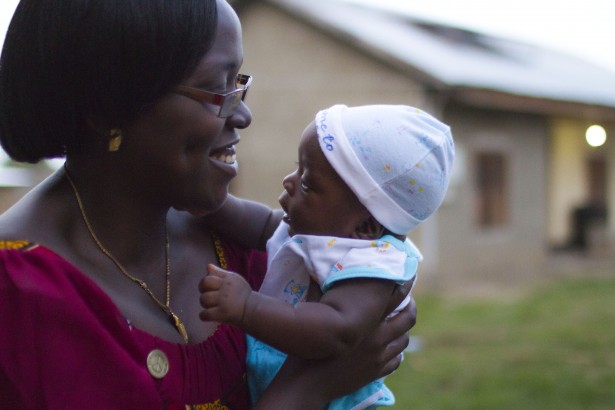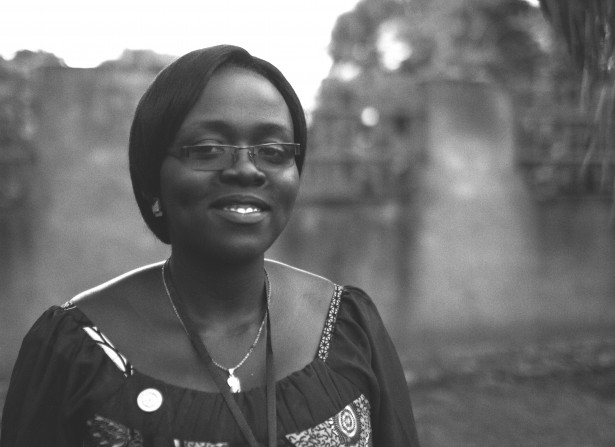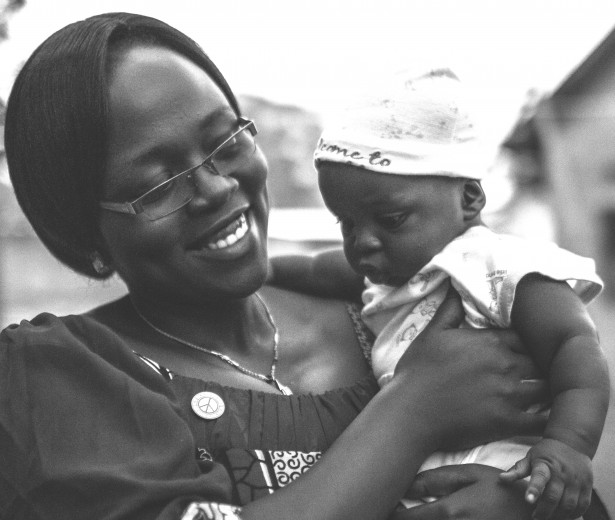Meet Melanie. I had the opportunity to sit down and talk to this wonder woman, and would like to share some of the highlights from our conversation.
So, Melanie, what does being Invisible Children’s operations manager in Dungu involve? What are your day-to-day responsibilities?
I supervise the whole of the finance, HR, and administration for the Dungu office—I’m trying to make sure that all of our different sections are using the internal organizational procedures properly. We have staff regulations put in place, and so part of my job is to make sure that all polices are clear to the staff—in English and French.
I also follow-up with partners about our joint efforts to make sure we stay in good relation with them, or attend meetings with other local NGOs. OCHA hosts meetings that bring together local, regional, national, and international NGOs and at these we can share information with each other. I also have to keep in touch with local authorities, and attend local community meetings. Or I can delegate the right person to represent our organization depending on what the meeting is about.
We also need to make sure that Invisible Children’s operations and policies are in line with the laws of the country.
Really, how do you do that?
Well, you sit down with Congo’s written constitution, read it and make sure that Invisible Children’s operations are ok according to the law.
Wow, you sound like one busy lady….
Yes, well I just don’t really worry about the 8-5pm, Monday-Friday cause I know it’s just can’t be like that for me.
Well that’s good. So, Melanie, where are you from and how did you end up with IC?
I am from Bunia [a town in Northeast DRC], and in February of 2011 I came to Dungu to visit my brother who was at the time working for another NGO. While I was here on holiday my brother’s organization was hosting a conference and needed help translating brochures. Because I could speak English and French my brother volunteered me to help. When it was time for me to go home the organization offered me a job and asked me to stay. And so I did.
I first met Invisible Children while I was still working for this other organization. When Invisible Children opened the office they asked me to come work for them. I’ve now been with Invisible Children since March of 2011. [That’s right, we won her over. Sorry we’re not sorry]
Ok, so how many languages do you speak?
Six.
Six! Which ones?
French, English, Swahili, Lingala, Luganda, and Hema. Hema is my tribal language.
So what’s it like working in Dungu?
Well what makes me love Dungu more is the organization I am working for.[Pause for warm and fuzzies]. It is a different organization from others because the relationship in Invisible Children is like a family. And when you feel like you are a family, you don’t want to leave your family.
Also, when you get to see how the community here in Dungu feels about Invisible Children, it is different from their feelings towards other organizations. Organizations can sometimes promise things, or say they will come back, and don’t. But invisible Children talks to the community and if they say they will com back, they come back. And if people ask for something we don’t just say yes and then not follow through, but we are honest and say that we will think about it, and if we can do it, we do it. Or is something is just not possible, we tell them that straight away.
Wow, it’s great to hear Invisible Children has such a great relationship with the community [Oh please, do go on…]
The quality of anything that Invisible Children builds in the community is the best. For example, if you look at centre Elikya there is nothing else in Dungu, and nothing that any other organization has built is close to the quality of the construction. Also, Invisible Children doesn’t just build something and walk away without leaving someone to take over—we train people to run operations such as the HF and FM radios. And if there is a problem we goes to them. We have flown out to visit radio operators who have been sick, or had personal issues. We don’t just call them, we go to them. We follow-up.
That’s awesome. So What do you do on your free time? What does a weekend look like for you?
I like watching movies and TV show— but I just finished my favorite!
Really? What was it?
24, it was so good. I also listen to Christian music, I sing in my church, and sometimes I moderate the English service. I also like to go on long walks in quite places… where no one can find me for a little bit! (laughs)
What’s your favorite thing about your job?
Building my capacity. The Melanie today is not the Melanie of 2011! I have been learning everyday up to this very moment. It is not always easy—a lot of things can happen and I can make mistakes—but I learn from them, and I learn from other people here in Congo. I’ve learned to welcome advice, and I’ve developed a strong character. I can say I like my job because it is making me stronger.
What advice would you give to a young person who wants to be the next Melanie when they grow up… or at least do work similar to yours?
Welcome a lot of ideas. Don’t just force people to do what you want, cause you never know if you can get good initiatives from people until you listen to them.



Think people should hear about this?